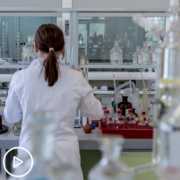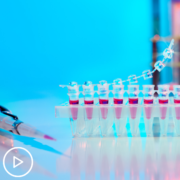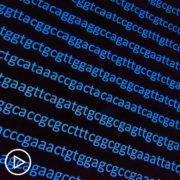Which Molecular Tests for CLL Will You Need?
CLL Treatment: Which Molecular Tests Will You Need? from Patient Empowerment Network on Vimeo.
Following a CLL diagnosis, which molecular tests are essential? Dr. Javier Pinilla-Ibarz reviews the types of tests available and their potential impact on prognosis and treatment. Want more information? Download the Program Resource Guide here.
Dr. Javier Pinilla-Ibarz is the Lymphoma Section Head and Director of Immunotherapy in the malignant hematology department at Moffitt Cancer Center. More about this expert here.
See More From The Fact or Fiction? CLL Series
Related Resources

|

|

|
Transcript:
Patricia Murphy:
Yeah, yeah. Let’s talk a little bit about molecular testing for a moment. What can you learn from molecular testing? When will that –
Dr. Javier Pinilla:
Yeah, molecular testing is quite important. I think that there’s different tests that we really perform, right? NCCN guidelines, iwCLL, has really, really laid out the fundamental tests that we need to provide, or we need to really do at least – they say “at least” when the patient requires therapy. Why? Because obviously, it’s gonna be an important part of how we are going to see the patient and how the patient is going to behave, even during therapy.
So, we are discussing about obviously FISH tests, FISH tests, that’s a chromosomal analysis that is very, very classical and has been done for years for classical chromosome abnormalities, 11q, 17p, that is the bad, always what you think that is the bad one. It’s true that it may even, with the new therapies, has shorter period of responses, 13q, trisomy 12. So, we set out with this one.
Besides that, what is the other important thing? The mutation status of the heavy chains in the immunoglobin, the IGHV mutation status. Very, very important because even when the new therapies made no difference, while we know patient with unmutated immunoglobulin may really have different outcomes in the long run. The truth is that with ibrutinib, for example, or venetoclax, we don’t see the difference in outcomes, but still we need to see what’s happening in the long run. So, the good news is that with the new therapies, we don’t see difference that we used to see with chemotherapy that unmutated immunoglobulin patients, they may really fail more often than mutated ones.
However, I think it’s something important that we need to implement. Last, but not least, is the TP53 mutations. I think it’s something that it should be implemented, and I think the teaching point is that TP53 mutations, maybe also NOTCH1 or SF3B1 – other mutations that may really give to patients a bad outcome in the long run, at least with the chemoimmunotherapy, it’s something that also can be done, or at least it’s something that will be important to really incorporate to our patients. Not in all the cases, but in some, TP53 for sure.










